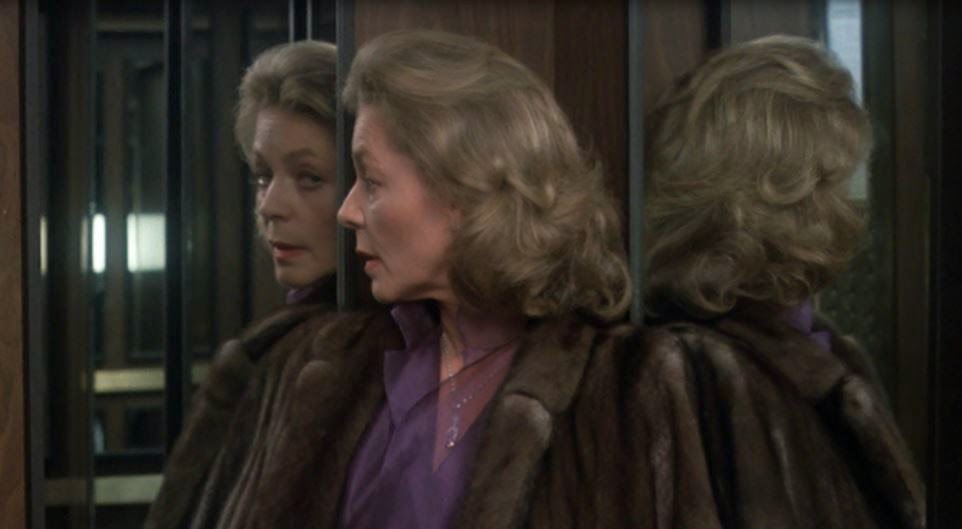
According to Michael Biehn the production of The Fan (1981) went less than smooth. In an interview on the Shout! Factory Blu-Ray of The Fan Biehn describes how Lauren Bacall did not want to be there and treated both himself and director Edward Bianchi terribly. Biehn also relates that until Dressed To Kill (1980) came out, The Fan was going to be more of a character study than a slasher film; a fact that greatly added to Bacall’s annoyance with the production. The resulting film, a sort of demented hybrid of Dressed To Kill, Cruising (1980) and Cabaret (1972), was a controversial flop.
Biehn plays Douglas Breen, a devoted fan and psychotic stalker of actress Sally Ross (Bacall). As Breen loses his grip on reality he comes more and more dangerous in his pursuit of Ross, attacking her secretary Belle Goldman (Maureen Stapleton) and other in her orbit. Set in New York City, the milieu of The Fan isn’t the dives of The Driller Killer (1979) or Maniac (1980) but the kind of seedy coked-out glamour of Broadway that’s more akin to the New York in Eyes Of Laura Mars (1978).
For being so displeased with the film Bacall still manages to give a committed performance as the aging starlet. Her scenes with the great Maureen Stapleton are particularly good and feel very authentic. But Bacall’s scenes, of which there are plenty, feel aesthetically opposed to the scenes of Biehn’s psychotic stalker. On the one hand The Fan is committed to being a backstage drama starring Bacall while on the other hand it also wants to be Dressed To Kill. While Biehn’s far more violent scenes are less frequent but more impactful, Bacall’s are more frequent and less memorable.
There’s also this one-off scene where Biehn picks a man up at a bar that feels incongruous within the whole of the picture. It raises questions about Breen’s sexual orientation but more than that it casts the character as a more general predator rather than the hyper focused stalker. Granted, Breen is only motivated to commit this murder in order to fake his death but it feels a bit too extreme even for The Fan. The fact that this extracurricular homicide targets a homosexual man is equally troubling particularly since a clear portrait of the victim or the victimizer is not forthcoming.
However The Fan has a certain niche appeal. It successfully combines the sensationalism of De Palma’s films with the self-referential camp of an aborted Lauren Bacall television special. In short, The Fan is as nonsensical and obsessive as its title character. The audience is either going to embrace this form of madness or reject it. Personally I lament that the film didn’t adhere to the epistolary structure of the original novel on which the film is based.
